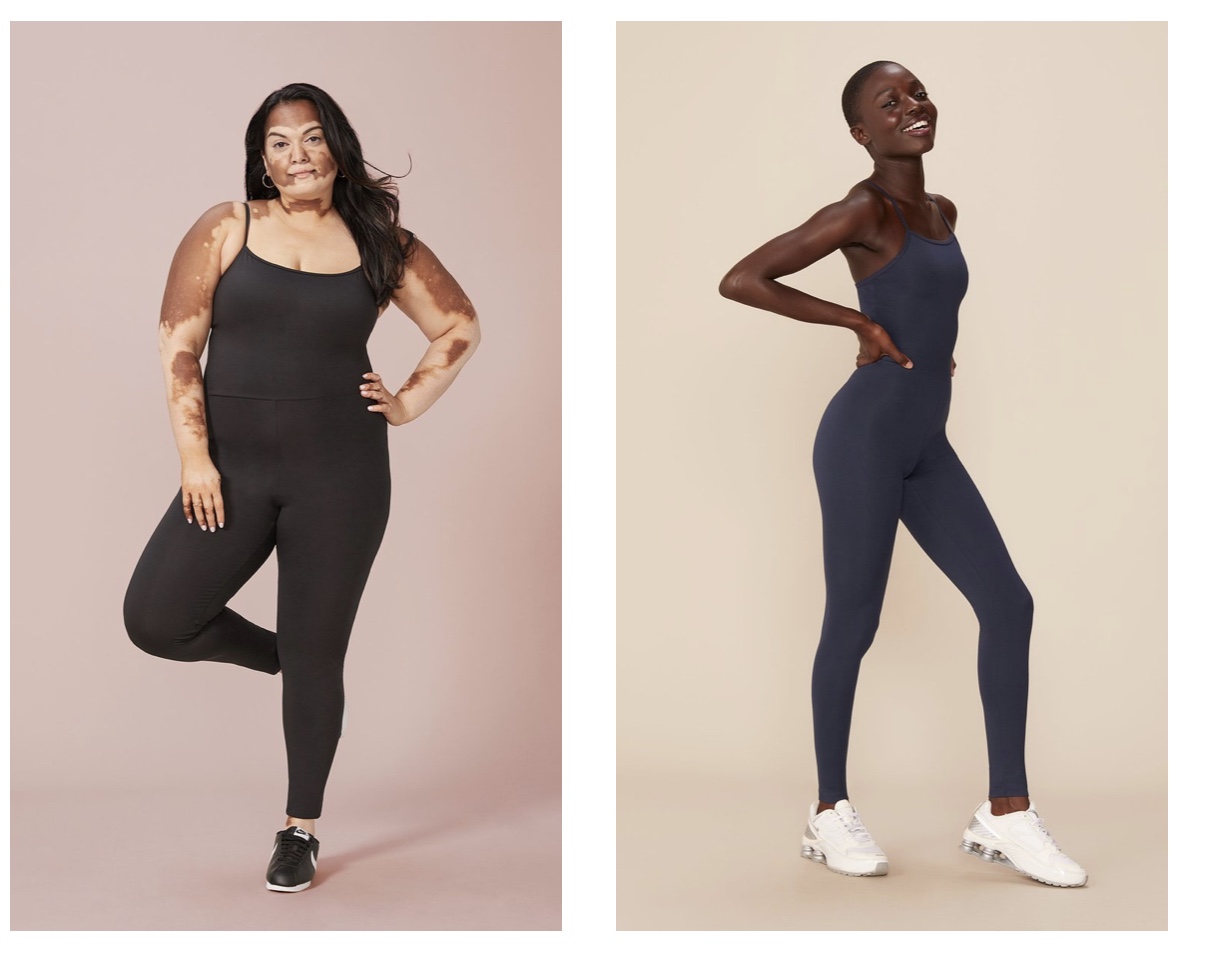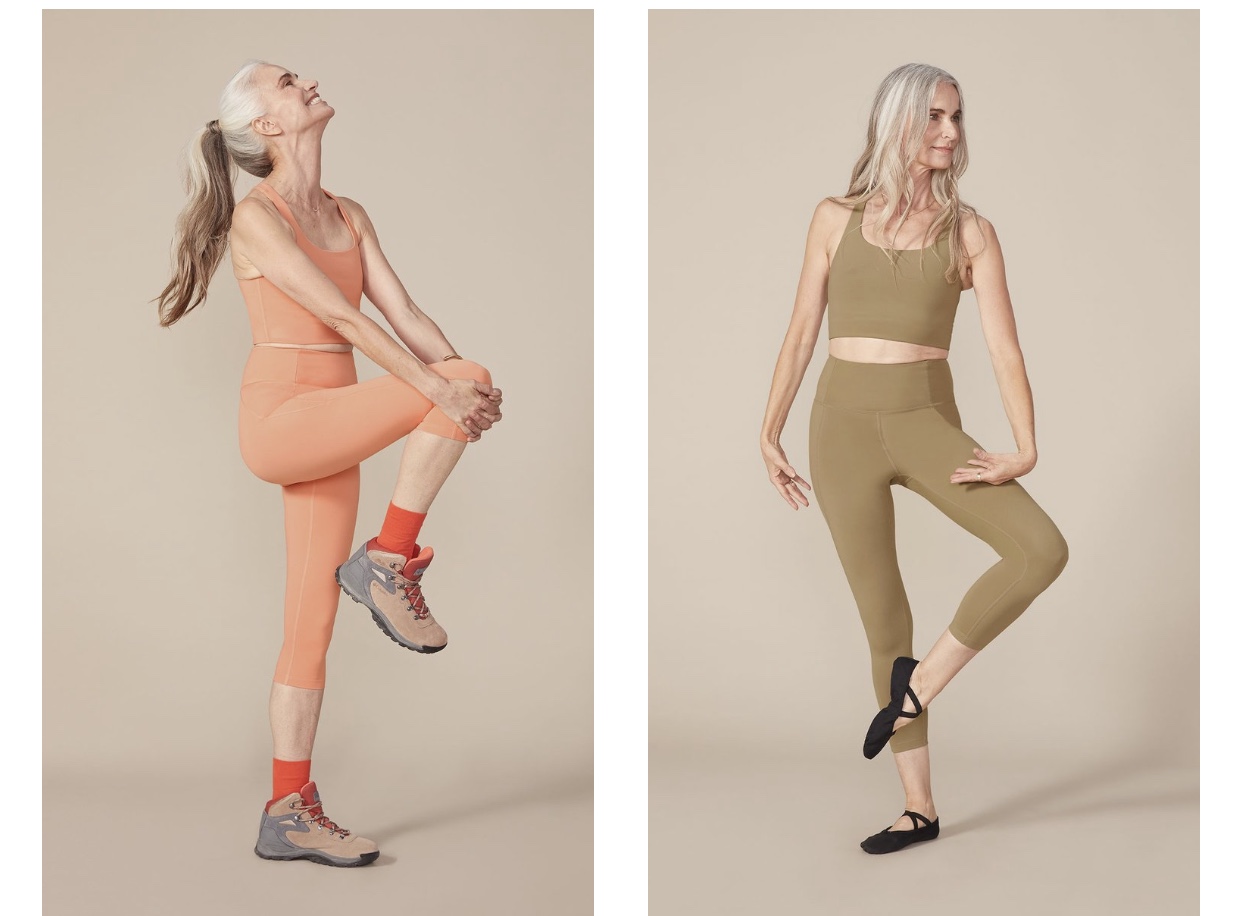Social Listening
SOCIAL LISTENING - Girlfriend Collective
I chose this brand, solely because it's popped up in my Instagram ads before, and I was really interested to learn more about them!
Girlfriend Collective is a clothing brand whose value proposition comes from their core values of sustainability and ethical manufacturing. All of Girlfriend's clothes are made of recycled materials, and the company has a major focus on encouraging other companies to set as high of ethical standards as they have.
Girlfriend Collective has very important core values that they believe every company should have. Girlfriend puts an emphasis on the importance of slow fashion over fast fashion, and sustainability. They make a point of being very transparent in all their production processes, and are very detailed about every step of how they make their clothes, and the significance that comes with doing it this way on their website.
Here's a quick little background on the company's sustainability efforts and core values:
Girlfriend Collective gives an exact breakdown of all the materials in each of their products, entailing how eco-friendly they really are.
Girlfriend Collective believes that, "health and wellness come in many shapes and sizes, and that representation matters". They consistently prove this by having models on their site of all different races, ages, and body types.


For even more inclusivity, on their Instagram, they even feature men wearing their products.
One of the most interesting things I learned about Girlfriend Collective's sustainability efforts, was how they got rid of their dye. This is from their website:
After scanning through both their Instagram and Facebook, you can see that Girlfriend Collective doesn't have a super great response rate, and really picks and chooses which comments to respond to. However, in their defense, a lot of the same questions are being repeatedly asked.
Unfortunately, Girlfriend's most frequent comment is a negative one. There were always several comments on every post complaining how this company was always out of stock.
This mainly poses a problem for the customer, more than the producer-- since the producers are selling all of their product. However, it does produce negative feelings towards the company from the consumer point of view.
In Girlfriend Collective's defense, their goal is to sell out, and to not overproduce, and they explain this in their comments... a lot. In addition, they have a newsletter that customers can subscribe to that can notify them when new items are up, and old ones are restocked, to fix this problem.
In addition, they did a particularly good job when customers had questions about sizing. They always replied and offered extra help-- the wise thing to do when you're basically guaranteed a sale.
Another smart response, in my opinion, were the comment replies that Girlfriend made to people questioning their ethical and sustainable practices within their clothing brand. I liked how they went out of their way to respond to all the comments regarding their questions-- since transparency is such a core value to their company-- to dispel any false claims about their company and its sustainability efforts.
If I was brand manager for this company, I would make more posts stating facts about climate change, or pollution, and other ways to make your life more sustainable. On their Instagram, they do a great job of this, they have over 15 permanent stories dedicated to topics such as how to live a zero waste lifestyle, clean beauty products, plant-conscious cooking, how their factories are ethical, and anything that relates to the companies core values. However, on their Facebook, there isn't as much representation with their values. The only posts about sustainability are reposts of articles that the brand has been mentioned in-- which is fine, but it vaguely reminded me of what we've learned from Vaynerchuck's points of being careful of not bragging too much on your social media.
Another thing I noticed is that this company isn't on Twitter. However, if you search Girlfriend Collective on Twitter, you'd see how much of their target market is on Twitter. There are several tweets giving the company praise and listing them among other sustainable brands to look for.
From doing research on this company, I've learned how hard it can be to be a sustainable brand, because we're so used to fast fashion and how it fills our instant gratification that is needed when it comes to online shopping. In addition, I've learned how complicated all the processes are, and how hard companies work to be considered an ethical manufacturing company.
I chose this brand, solely because it's popped up in my Instagram ads before, and I was really interested to learn more about them!
Girlfriend Collective is a clothing brand whose value proposition comes from their core values of sustainability and ethical manufacturing. All of Girlfriend's clothes are made of recycled materials, and the company has a major focus on encouraging other companies to set as high of ethical standards as they have.
Girlfriend Collective has very important core values that they believe every company should have. Girlfriend puts an emphasis on the importance of slow fashion over fast fashion, and sustainability. They make a point of being very transparent in all their production processes, and are very detailed about every step of how they make their clothes, and the significance that comes with doing it this way on their website.
Here's a quick little background on the company's sustainability efforts and core values:
Girlfriend Collective gives an exact breakdown of all the materials in each of their products, entailing how eco-friendly they really are.
Girlfriend Collective believes that, "health and wellness come in many shapes and sizes, and that representation matters". They consistently prove this by having models on their site of all different races, ages, and body types.
For even more inclusivity, on their Instagram, they even feature men wearing their products.
One of the most interesting things I learned about Girlfriend Collective's sustainability efforts, was how they got rid of their dye. This is from their website:
How do you dye?
Our fabric is dyed with eco-friendly dyes and the wastewater is carefully cleaned and cooled before it is released. (We even donate the dye mud to a local pavement facility where it’s recycled into sidewalks and roads.)After scanning through both their Instagram and Facebook, you can see that Girlfriend Collective doesn't have a super great response rate, and really picks and chooses which comments to respond to. However, in their defense, a lot of the same questions are being repeatedly asked.
Unfortunately, Girlfriend's most frequent comment is a negative one. There were always several comments on every post complaining how this company was always out of stock.
This mainly poses a problem for the customer, more than the producer-- since the producers are selling all of their product. However, it does produce negative feelings towards the company from the consumer point of view.
In Girlfriend Collective's defense, their goal is to sell out, and to not overproduce, and they explain this in their comments... a lot. In addition, they have a newsletter that customers can subscribe to that can notify them when new items are up, and old ones are restocked, to fix this problem.
This one comment that I saw on one of their Facebook posts I found particularly funny (I guess you can find all the "Karen's" on Facebook). Someone wrote a very long, negative comment about not having enough stock, but Girlfriend had a good response to back it up and explain their sustainability practices.
The comment responses that I liked the most are ones that I would definitely say leads to consumers having a positive relationship with the company. A common thread of responses that I noticed from the company, was that whenever someone had a question on what type of activities they could do in their active wear, Girlfriend usually responded and gave tips on what clothes they recommended depending on the exercise that the customers would be doing. Not only were these responses informative and helpful, they could give other consumers ideas on what items to purchase from them.
In addition, they did a particularly good job when customers had questions about sizing. They always replied and offered extra help-- the wise thing to do when you're basically guaranteed a sale.
Another smart response, in my opinion, were the comment replies that Girlfriend made to people questioning their ethical and sustainable practices within their clothing brand. I liked how they went out of their way to respond to all the comments regarding their questions-- since transparency is such a core value to their company-- to dispel any false claims about their company and its sustainability efforts.
If I was brand manager for this company, I would make more posts stating facts about climate change, or pollution, and other ways to make your life more sustainable. On their Instagram, they do a great job of this, they have over 15 permanent stories dedicated to topics such as how to live a zero waste lifestyle, clean beauty products, plant-conscious cooking, how their factories are ethical, and anything that relates to the companies core values. However, on their Facebook, there isn't as much representation with their values. The only posts about sustainability are reposts of articles that the brand has been mentioned in-- which is fine, but it vaguely reminded me of what we've learned from Vaynerchuck's points of being careful of not bragging too much on your social media.
Another thing I noticed is that this company isn't on Twitter. However, if you search Girlfriend Collective on Twitter, you'd see how much of their target market is on Twitter. There are several tweets giving the company praise and listing them among other sustainable brands to look for.
From doing research on this company, I've learned how hard it can be to be a sustainable brand, because we're so used to fast fashion and how it fills our instant gratification that is needed when it comes to online shopping. In addition, I've learned how complicated all the processes are, and how hard companies work to be considered an ethical manufacturing company.